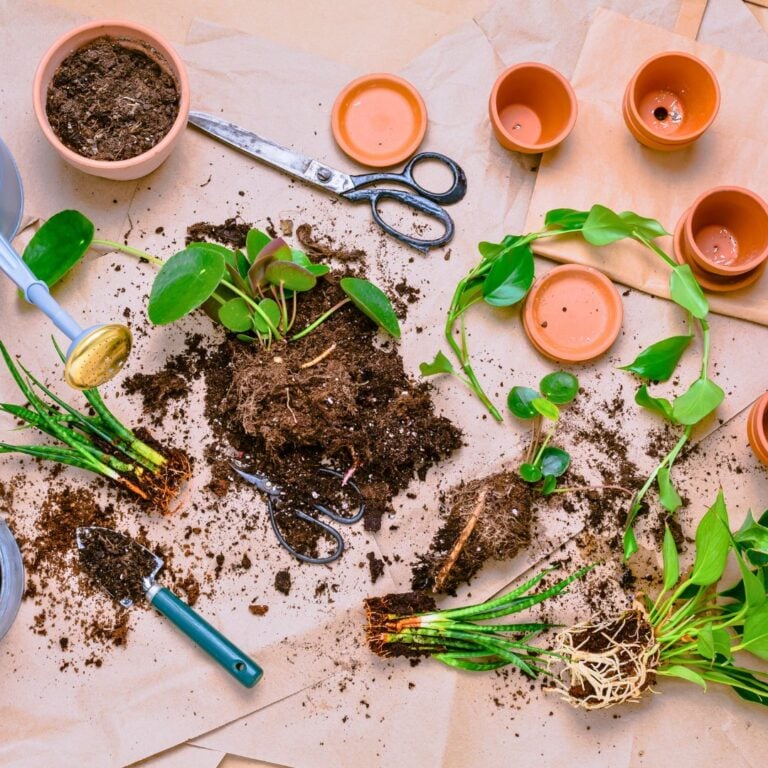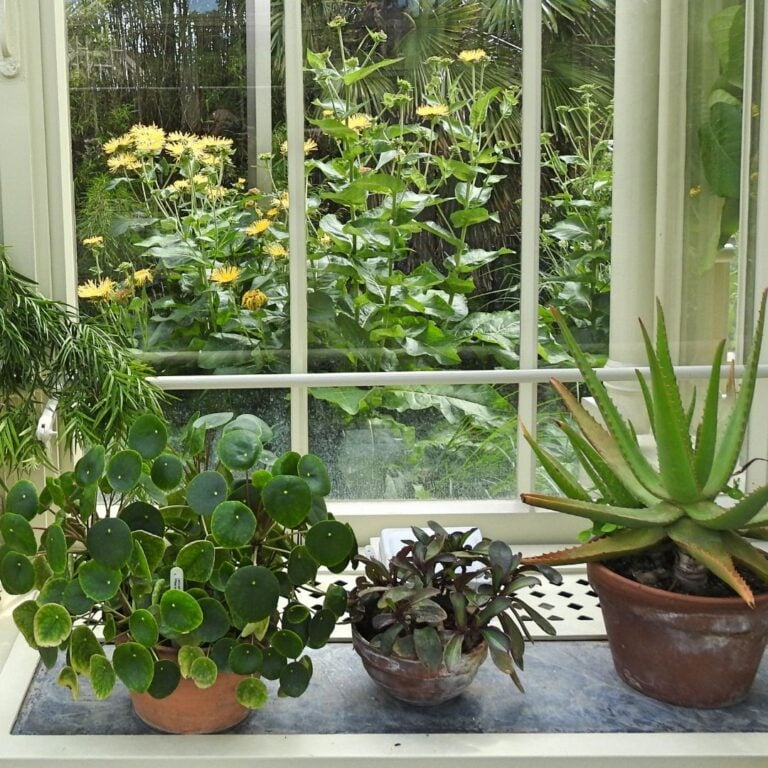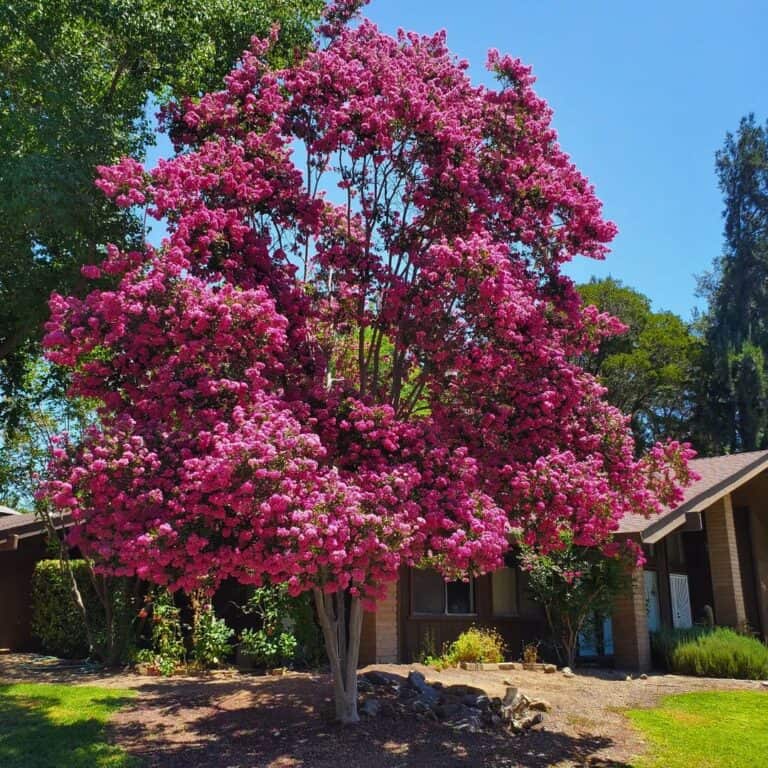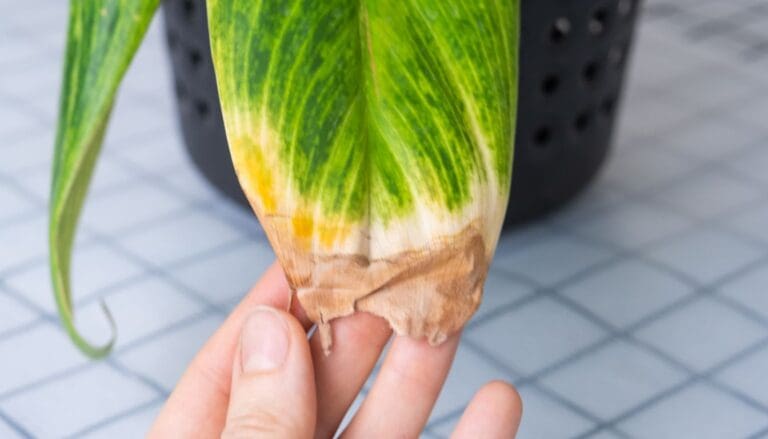Do Fertilizers Kill Weeds? (+How To Get Rid Of Them)
Do you notice weed growth in your lawn or garden? I know you hate that and want to get rid of them as soon as possible. So, if you are wondering whether fertilizer can kill weeds, you are at the right place.
Generally, the regular fertilizer you use on your plants doesn’t kill weeds as they provide balance nutrients to the soil, which is absorbed by weeds as well. However, you can use vinegar, baking soda, or a herbicide in the lawn or garden to kill the weeds.
In this article, we will discuss whether any fertilizer can kill weeds and the different ways of getting rid of weeds. So, keep reading.

Please note: Simplify Plants is reader-supported. As an Amazon Associate, I earn from qualifying purchases made by our readers with no extra cost added to you all! Some links in the post are affiliate links and I get a commission from purchases made through links in the post.
Can fertilizer kill weeds?
Nobody wants unnecessary weed growth in their beautifully maintained lawn or garden.
But it still happens, especially when we are out of the house for days or too busy to look after the garden.
Once you notice the weed growth, you want to act fast and remove them before they can take over a large area and increase your work even more!
If you think fertilizing will help you kill weeds, you are wrong, especially if you think of adding regular fertilizers.
Adding regular fertilizer will boost the growth of the weeds, like it boosts the growth of all the plants.
Adding excessive fertilizer might be able to kill those weeds, but it will also kill all the good plants you are growing.
However, using fertilizers correctly can prevent weeds from returning.
Should I fertilize or remove weeds first?
Now that you know fertilizers are not the best choice for killing weeds, you might want to know which to do first.
You should always kill the weeds first and then consider fertilizing.
We will mention all the ways of killing weeds but never go for it more than once a year.
On the other hand, you can fertilize at least 3-4 times a year.
How do I kill weeds?
Now, let’s check all the different ways in which you can kill weeds:
1. Nitrogen-rich fertilizer

You can use a Nitrogen-rich fertilizer to kill specific weeds like dandelions and clovers.
If you see a lot of dandelion growth, you should understand that the soil lacks calcium and contains too much potassium.
However, do not use a Nitrogen-rich fertilizer on all weeds, as it can help some weeds grow.
If you want to get a Nitrogen-rich fertilizer, here are some options to choose from:
- Super Juice All-in-One Soluble Supplement Lawn Fertilizer
- Humboldts Secret Base A & B Bundle
- The Andersons Professional PGF Complete 16-4-8 Fertilizer
2. Use vinegar
Vinegar is a great way of getting rid of weeds.
However, you must be very careful as it can destroy all plants.
The acetic acid in vinegar kills plants.
You should spray it carefully on the weeds only.
Take a spray bottle and add vinegar to it, and you are good to go.
Since vinegar has become popular for removing weeds, you also get horticultural vinegar stronger than regular vinegar.
However, these are very strong and can burn the skin, so wear gloves and be careful while using them.
3. Mulching

Mulching is one of the easiest ways of getting rid of weeds.
Mulching means adding a layer over the soil.
Here are some things you can use for mulching:
These will not allow the growth of weeds and will also add nutrients to the soil.
Remember to apply them every few years.
4. Use boiling water
If weeds grow on garden paths or walkways, boiling water will be a great way to remove the weeds.
You can boil water and pour it over the weeds.
This will kill not only the weeds but also their seeds.
However, do not consider this to eliminate weeds growing in your garden or lawns as it can kill other plants too.
5. Handpick the weeds
It is best to keep the weeds from taking over your garden.
So, you can handpick the 2-3 weeds you see and stop them from increasing.
You can use a garden fork to do this.
Make sure you take the weeds out from their roots.
However, you cannot go for this method if there are many weeds in the garden as it will become a tedious process then.
6. Mow the weeds

Mowing is also a good way to keep weeds away.
If you notice weed growth in your lawn, mow it frequently to remove them and prevent them from spreading seeds.
Also, do not leave the clippings in the lawn after mowing, as that can lead to regrowth.
You can attach a basket to your lawn mower and collect the weeds to keep the lawn weed-free.
7. Use baking soda
You can kill weeds with baking soda too.
If the weeds are growing in between cracks of walkways or pavings, sprinkle baking soda in them.
Water weeds thoroughly in your lawn or garden so the baking soda can stick to them.
Then add a tsp. of baking soda to the weed and wait for it to work.
If you still see the weed after some days, reapply the baking soda in 4-6 weeks.
8. Use a heat gun
You get heat guns in the market that are designed to kill weeds.
Using heat guns is effortless, and it is environment-friendly as well.
A heat gun kills the leaves of the weeds with its high temperature and eventually kills them.
However, it cannot target the roots, so you might need to use it multiple times to kill the weeds from the roots.
9. Use landscape fabric
You can get landscape fabrics at garden centers and stores that sell gardening supplies.
Adding these to the areas that have chances of weed growth can act as a prevention method.
If you cannot access landscape fabric, use old shower curtains or carpet tiles to prevent weed growth.
10. Use saltwater

Another easy way of getting rid of weeds is saltwater.
Take salt, mix it with water, and spray it on the leaves of the weeds.
However, do not use this on your flower bed, as it can affect the flowers and the soil.
You can also add vinegar to the saltwater for more effective weed removal.
11. Use herbicide
If you ask me, herbicide should be your last choice.
Herbicides contain chemicals that will kill the weeds effectively but can risk other plants.
You can go for this option if you have tried everything I have mentioned above and nothing is working.
You should read the label carefully before applying, as some herbicides kill selective weeds while some can kill all plants.
Add the herbicide to a spray bottle or watering can, and do not use it for any other purpose.
When should I apply fertilizer?
If you have treated your weeds with herbicide or removed them using any other method, you can apply fertilizer to your lawn.
It is best to apply fertilizer to the lawn in the growing season.
And you can also apply fertilizer in the fall.
I suggest removing weeds before applying fertilizer to your lawn or garden.
Should I use “Weed and feed” products?
Many use “Weed and feed” products on their lawns to prevent weed growth.
These will not help if you are looking to kill weeds.
These products will help prevent further growth.
So, consider using them if you have already removed the weeds.
Ensure to read the labels and follow all the instructions.
Keep these in mind:
- Use weed and feed products when the sun is out.
- Water your lawn before applying.
- Do not water after applying.
Does 10 10 10 fertilizer kill weeds?
NPK 10-10-10 fertilizer is a balanced fertilizer that doesn’t kill weeds.
It is a great fertilizer that helps plants, including weeds, grow and thrive.
Overusing this fertilizer is also not a way to kill weeds.
It can damage other plants or grass and also harm the environment.
You can opt for a Nitrogen-rich fertilizer to kill specific weeds, as I mentioned earlier.
You can use a 10-10-10 fertilizer only after removing the weeds first.
Final words
I hope this article has helped you understand that fertilizer doesn’t kill weeds. Some Nitrogen-rich fertilizers can kill some weeds, but I have discussed all the better options for killing weeds.
Always try to use organic ways of getting rid of weeds first. You can use a garden fork to remove the weeds or use boiling water, vinegar, salt water, or baking soda to remove the weeds. Go for a chemical herbicide only after trying everything else.
Once you remove the weeds, you can prevent regrowth by mulching or mowing your lawn from time to time. You can also use “Weed and feed” products or landscape fabric to prevent weeds.
Whichever method you use, read the products’ labels and follow the instructions carefully before applying. If you are not careful enough, it can affect the grass of your lawn or other plants in your garden.
Reference: Fertilizer effects on weed growth, Weed Control, Weed Removal Timing, Abrasive Weeding.
Note: Some images in the articles are sourced from Reddit and Other Platforms For Reference Purpose.







Thanks for another informative site. Where else may just I
am getting that type of information written in such an ideal way.
hello, thank you for all of your teaching materials. i have a yard that has not been tended to over. it is more weeds than grass. i took a weed puller tool and went through the whole yard once. i went fairly deep in order to hopefully pull the roots out. should i now use a hoe or one of the special rakes and try to pull the soil together so i can now remove weeds clippings (and roots) by bagging it and hopefully end up with fairly clean soil? if so, what would my next step be. using roundup or similar to make sure whatever is there dies? please let me know net steps. again, thank you for your education
You’re on the right track! After pulling the weeds and roots, using a hoe or rake to gather and bag the clippings is a good next step. Once the soil is fairly clean, you can apply an organic weed killer or a product like Roundup to ensure any remaining weeds are eliminated. After that, consider enriching the soil with compost and overseeding with grass to promote a healthy lawn. Regular maintenance will help keep the weeds at bay.
Hope that helps!